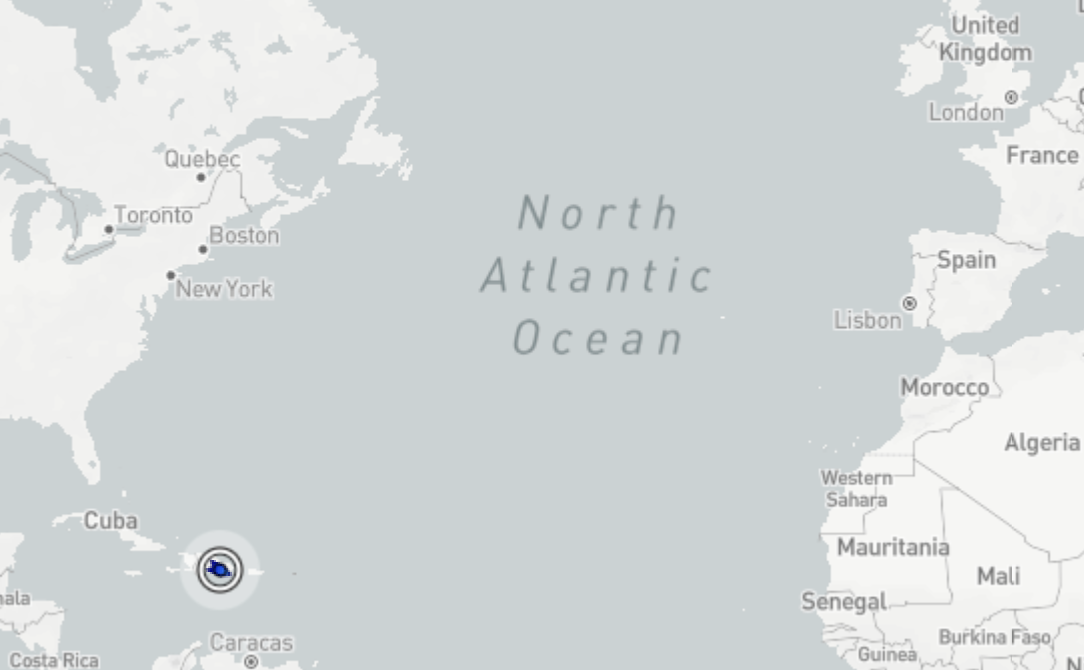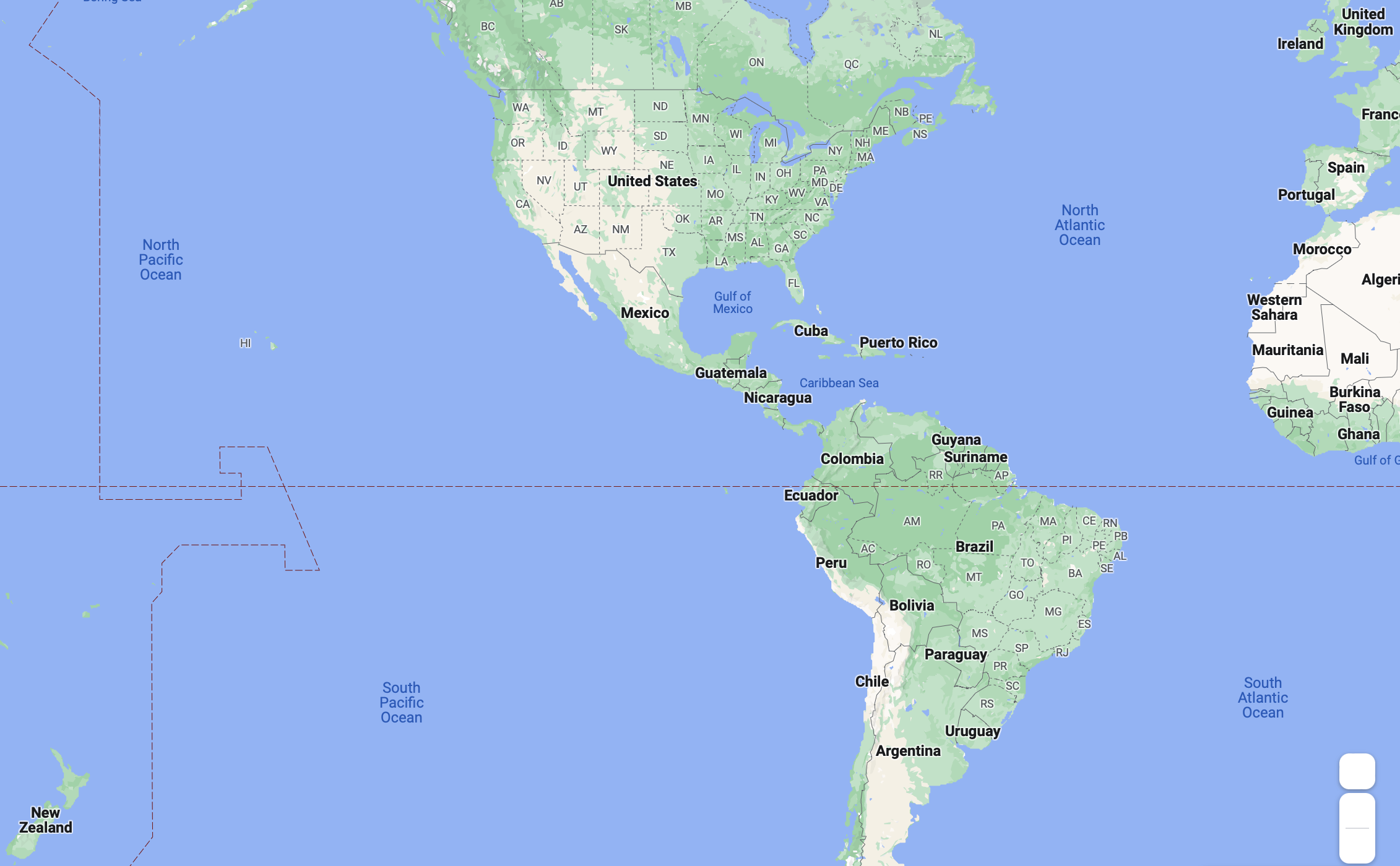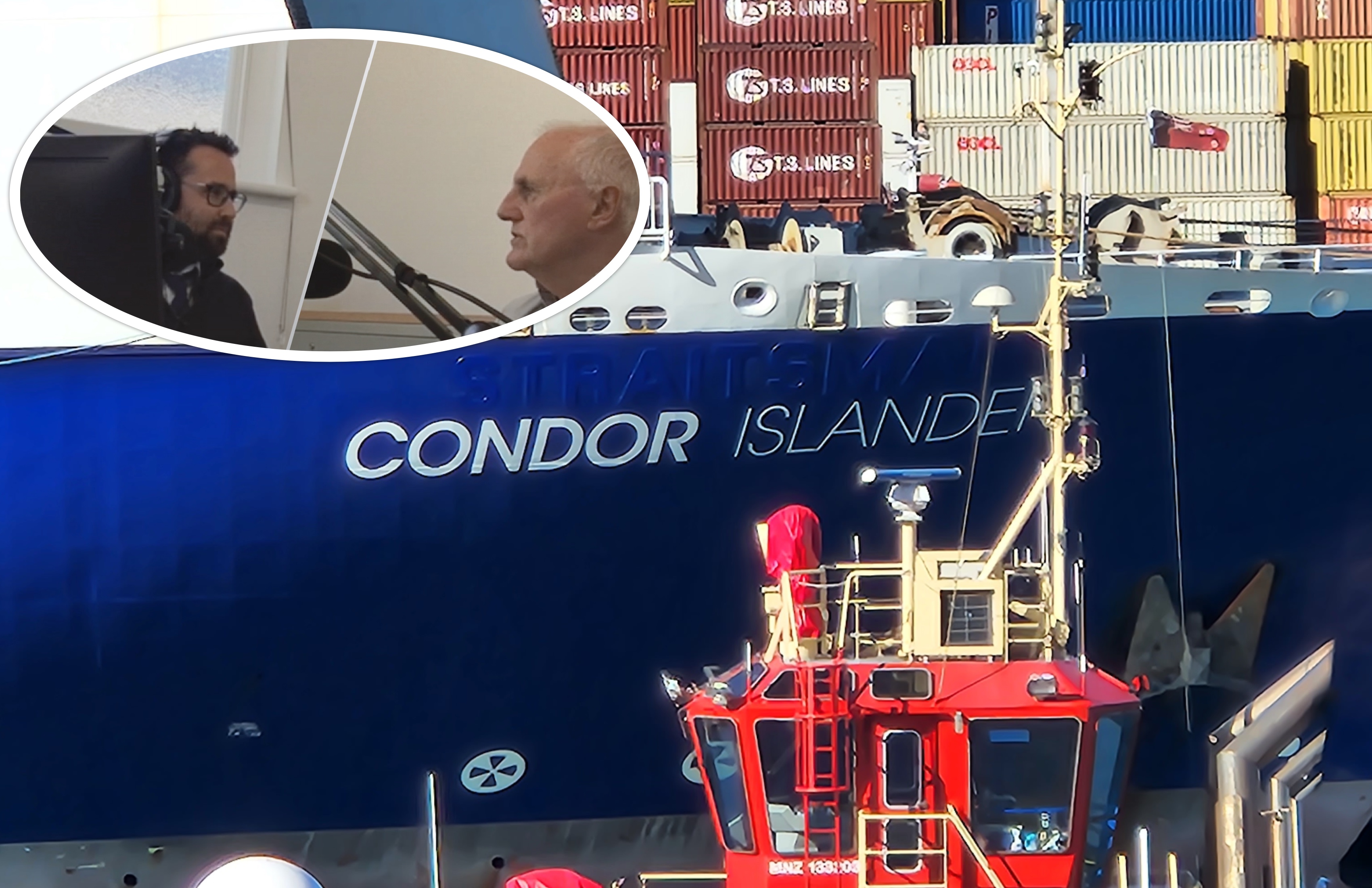


The Condor Islander is making its way across the Atlantic in the latest stage of its journey from New Zealand to the Channel Islands.
The vessel was docked in the Dominican Republic at the weekend, before setting sail today.
The ferry is heading for Santander on the north west coast of Spain. The journey is expected to take another eight days at least.

Pictured: Condor Islander left the Dominican Republic on Monday, to start its transatlantic crossing.
Once the ferry clears the coast of Salvaleon de Higuey – a Dominican city – the journey across the ocean will take a week, before the Islander comes close to Madeira and the Azores, and the Portuguese coast, before docking in Santander.
From there, she's expected to sail to the south coast of England with an expected arrival of mid-to late June.
On arrival in British waters, the Islander will then enter dry dock for two months before starting services in the Channel this September.

Pictured: It will take seven weeks in total for the Condor Islander to travel from New Zealand to the British Isles. The ferry is currently at the half way point both geographically and time-wise.
The former MV Straitsman left New Zealand in mid-April to sail across the Atlantic Ocean to its new role as part of the Condor fleet serving the Channel Islands.
Now rebranded as the Condor Islander, it previously served the Cook Strait for more than a decade after entering service in 2010.
Having been bought by Condor Ferries and the States of Guernsey, the vessel will enter service alongside the Commodore Clipper and Goodwill and Condor Liberation and Voyager later this year.

Pictured: The Condor Islander has been bought by the ferry firm and the States of Guernsey.
Guernsey's Policy and Resources Committee loaned Condor £26million to bolster £6million in joint equity from the States and Condor to buy the ferry.
It was originally meant to be bought through the Guernsey Investment Fund (GIF) but after that deal fell through the Civil Contingencies Authority was convened to expedite an alternative funding agreement. The CCA was required because there was a potential critical risk to the island’s supply chain if the deal wasn’t completed.
The exact nature of this ‘critical risk’ has since been questioned and the CCA released a statement explaining its position which included confirmation that "there is now no immediate or imminent risk to our supply chain”.
The CCA said it was satisfied that purchasing the vessel at this specific time was “essential and satisfied the need to act to prevent a potential emergency occurring in accordance with the Civil Contingenecies (Guernsey) Law 2012”.
Comments
Comments on this story express the views of the commentator only, not Bailiwick Publishing. We are unable to guarantee the accuracy of any of those comments.